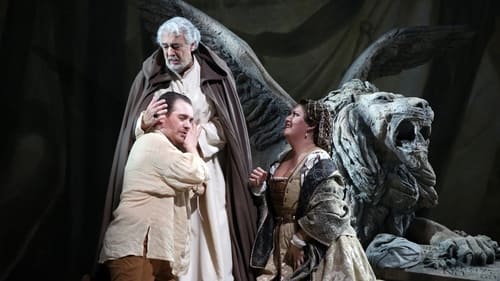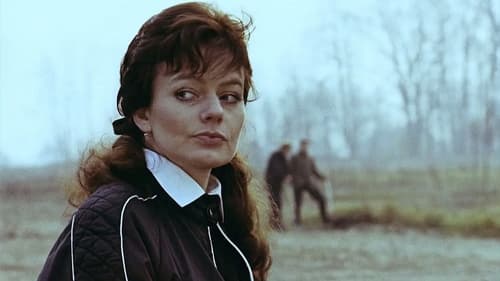
Self
A TV documentary about Latvian actor Uldis Pūcītis, featuring fragments from many of his films ("Swap Treader", "Four White Shirts" and others), as well as stories by people who knew him - actors and directors, former lovers and classmates.

Director
Ludwig van Beethoven, Johannes Brahms, Béla Bartók: Three masters of modernity, three masters of orchestral composition brought to life by Internationally-acclaimed Russian conductor Tugan Sokhiev, Music Director and Chief Conductor of the Bolshoi Theatre in Moscow and Music Director of Orchestre National du Capitole de Toulouse (ONCT) since 2008. Richard Strauss’ penultimate, satirically mythological opera Die Liebe der Danae (The Love of Danae, after a draft by Hugo von Hoffmansthal. The Wiener Philharmoniker play under the baton of Franz Welser-Möst, under whom they “conveyed the glittering colors and lyrical intricacies of Strauss’s late score” (NY Times).

Director

Director
2016년 밀라노 라 스칼라 실황으로, LA오페라 총감독이자 현존 최고의 스타 성악가인 플라시도 도밍고가 정치적 음모에 의해 아들을 잃게 되는 고뇌에 찬 프란체스코 역을 맡았다. 그동안 도밍고와 함께 스페인 발렌시아, 데아터 안 데어 빈, 로열 오페라 등에서 호흡을 함께 해온 테너 프란체스코 멜리가 출연하여 두 사람의 안정된 호흡이 인상적이다. 소프라노 안나 피로치, 지휘자 미셸 마리오티의 합류는 상상 그 이상의 무대를 보여준다. 연출을 맡은 알비스 헤르마니스는 같은 해에 있었던 잘츠부르크 페스티벌에서 리하르트 슈트라우스의 후기작 ‘다나에의 사랑’을 올려 화제를 낳았던 인물. 이 작품이 2012년 9월 LA오페라에 오를 때부터 프란체스코 역을 전문적으로 맡아온 플라시도 도밍고의 명성과 열연은 스페인 발렌시아, 데아터 안 데어 빈, 로열 오페라 등으로 지속되는 동안에도 힘을 발휘했다. 이번 무대에서도 같은 역을 맡은 그의 존재로부터 눈을 떼려야 뗄 수 없다. 1막 3장 ‘오 나의 마음을 두드리는 옛 심정이여’부터 3막 2장 ‘운명의 종소리인가’로 이어지는 도밍고의 음성은 그의 전성기를 연상케 한다. 최고 지도자이면서도 정작 억울한 누명을 쓴 아들 자코포를 구출하지 못하는 프란체스코는 자신의 운명을 뼈저리게 느낀다. 15세기 베네치아 공국, 총독 프란체스코 포스카리의 아들 야코포는 살인 누명을 쓰고 크레타 섬에 유배되었다가 재판을 받기 위해 베네치아로 돌아온 상태이다. 야코포는 자신은 흉악한 음모의 희생자일 뿐이라고 말하며 그의 아내 루크레치아는 총독에게 자비를 구한다. 총독의 정적, 말리피에로가 이끄는 위원회는 총독의 사임을 요구하며 야코포에게는 유배를 명하는데...

Director
The Count Di Luna believes that his younger brother was murdered years before by a vengeful gypsy but still hopes that he may be alive. When he attempts to court the beautiful Leonora, he is enraged to discover that she has a lover – the troubadour, Manrico. Manrico and the Count duel, and afterwards Manrico reveals to Azucena, the woman he believes to be his mother, that when he had the opportunity to kill the Count he felt something holding him back.

Self
A film about one of Europe's best young theatre directors, Latvian-born Alvis Hermanis, and his distinctive method, marked by a renunciation of classic dramatic material.

A homage to Krišjānis Barons and his life's work – to collect and catalogue Latvian folksongs or dainas,thus creating the encyclopaedia of Latvian life, a poetic reflection of the knowledge of life accumulated over the centuries. The film is based on Krišjānis Barons' life during late 1800s and early 1900s – his childhood and youth in Latvia, studies and work in St. Petersburg and other places in Russia, his relationship with his faithful wife Dārta, and the awakening of the Latvian self-awareness.

A film about national belonging, featuring Latvian director Alvis Hermanis.

Kārlis Valders
The 1980s. Kārlis did his military service in Afghanistan and is now confined to a wheelchair. Before he left, he had fallen in love with the teacher Judīte, but she has now married a rich man...and poses nude for Kārlis' neighbour, the cynical photographer Rūdofs. Soon Rūdolfs is found dead, and Kārlis admits to having murdered him. But investigator Konrāds suspects that Kārlis is incriminating himself.

Director
The film is based on true events leading up to the historical 2013 resignation of Benedict XVI. After succeeding John Paul II, and serving as Pope for eight years, Joseph Ratzinger shocked the world by becoming the first Pope to voluntarily resign in over 600 years. In light of moral and ethical upheavals in the Catholic Church, and the unique challenges of the 21st century, Ratzinger's cited reason of declining health raises more questions than it answers.







